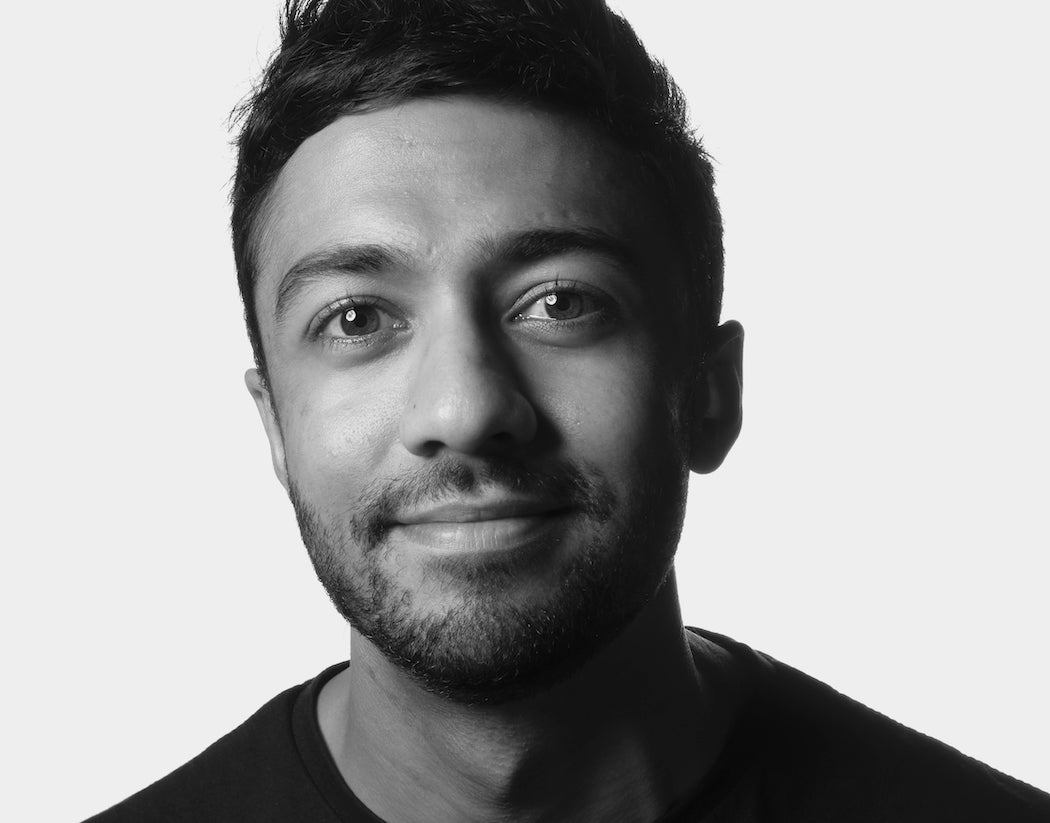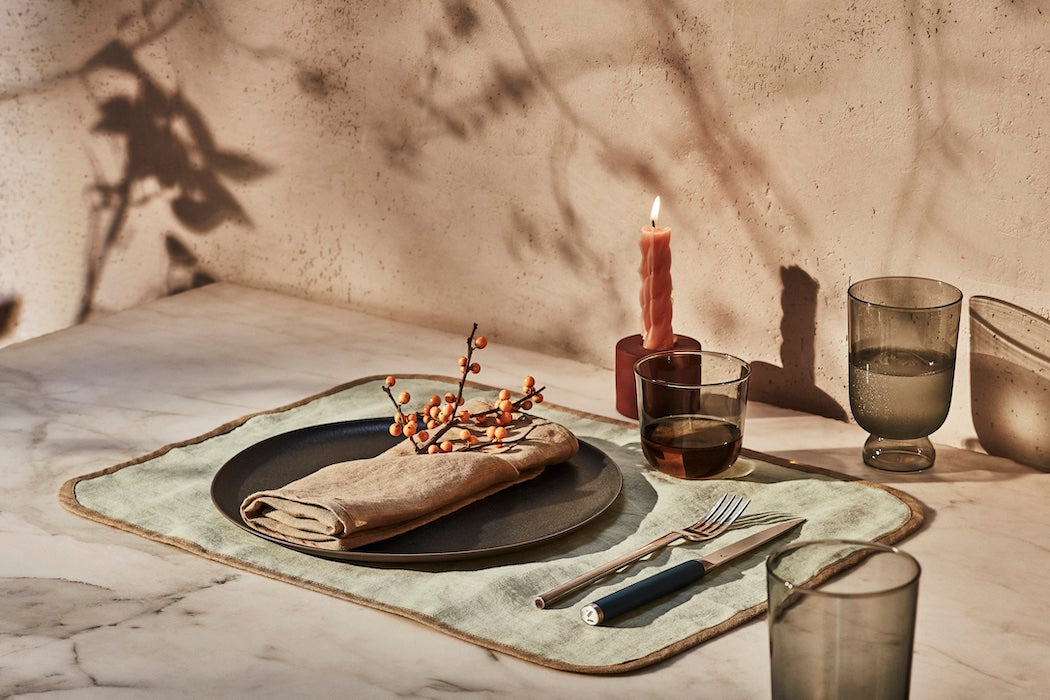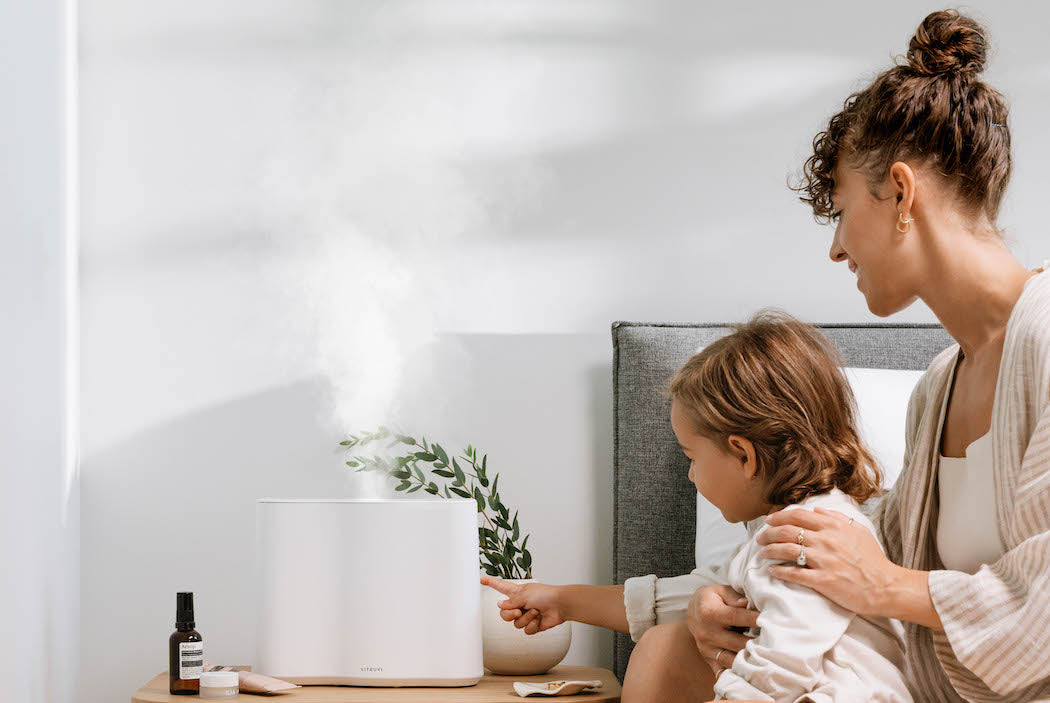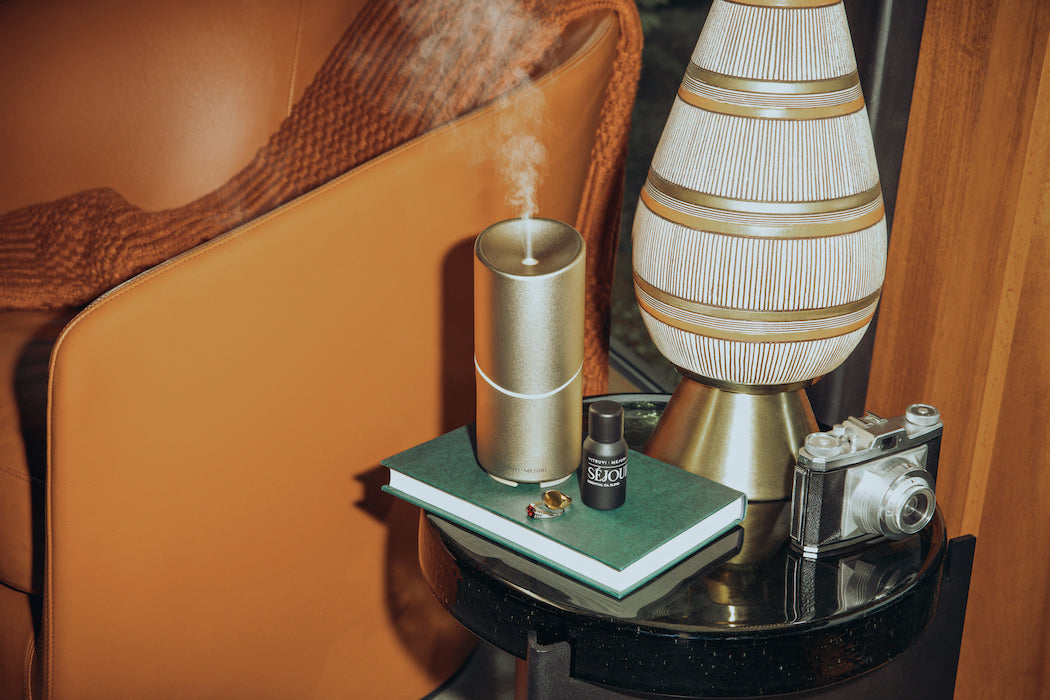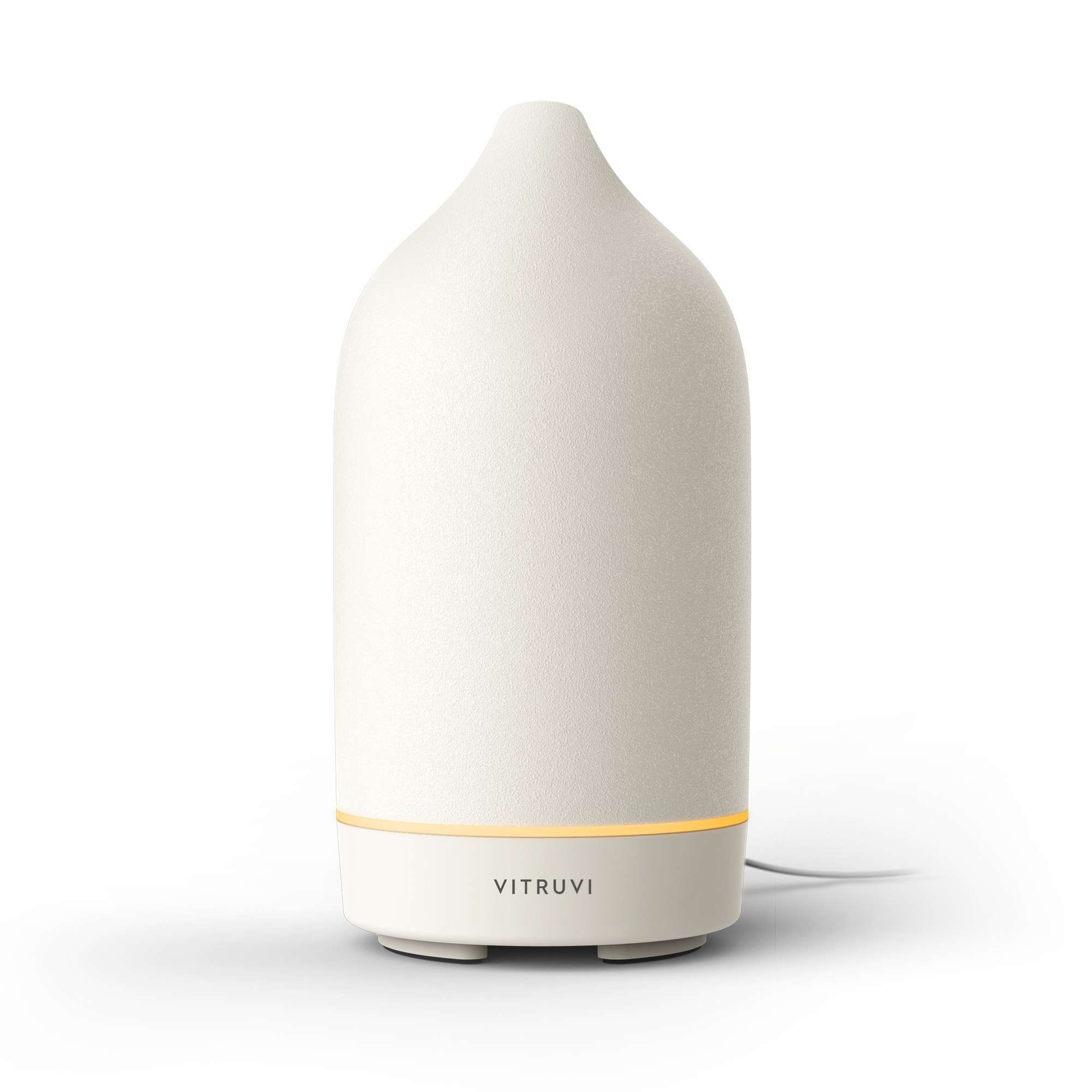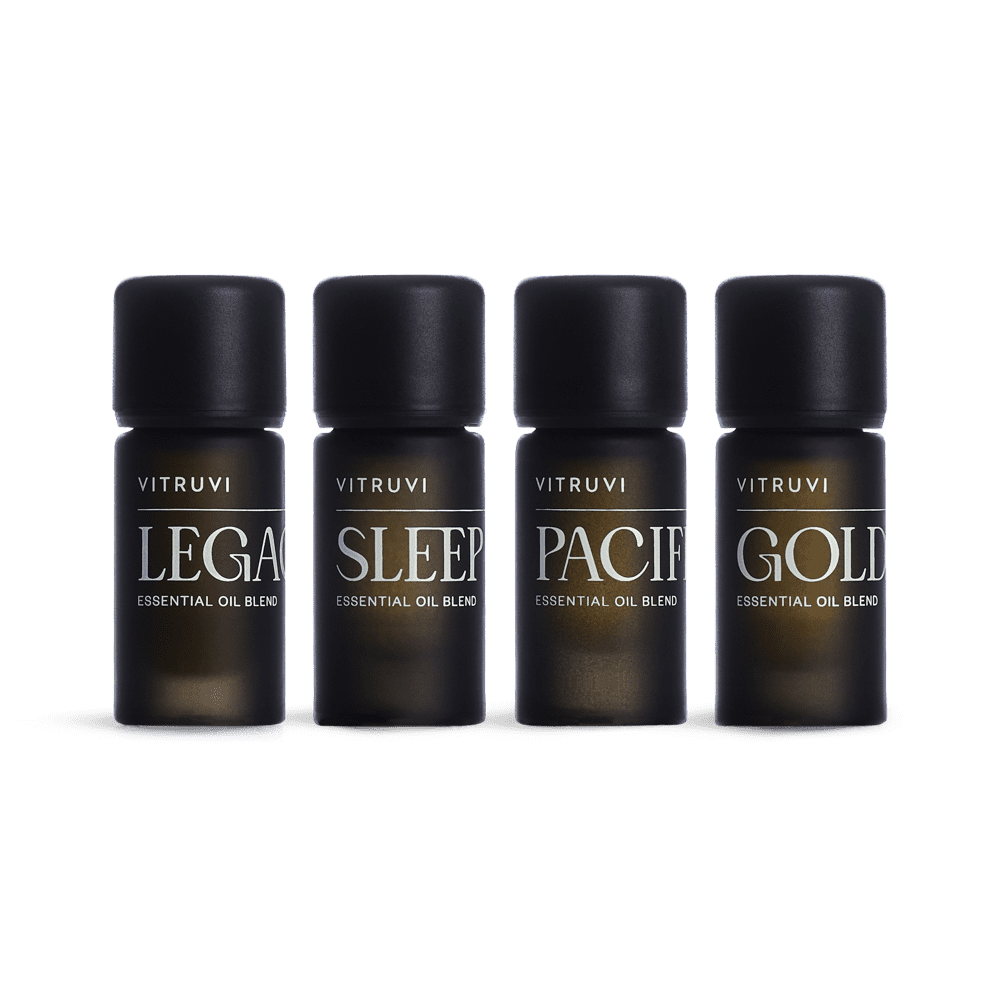“At the end of the day, what we’re doing is so simple,” Monish Sabnani says. “We’re designing beautiful phone charging accessories for your home—and we want them to have a feel-good factor to them, and to make you feel like this is a purchase that you really enjoy and that you use.”
Of course, in actuality, running any business—especially one in design-forward hardware—is complex. But getting down to brass tacks, the mission for Courant, which Sabnani cofounded in 2018, really is straightforward: wireless small-gadget charging that looks good in your home. That’s it. That’s the tweet.

Over video from his home in New York, Sabnani discusses quality materials, good leadership, work-life integration, and why he doesn’t want his company to scale infinitely.
A big differentiator between your brand and other wireless charging companies is the materials you use. Why was that important to you?
Materials are a huge part of the business. Right now we have two collections: the first is Classics, which is Italian leather, and then the second is Essentials, which is Belgian linen.
Our customers are people that spend a lot of time at home and care about the details in their home. They want every unique thing to look good and fit and be the right color.
You mention the design aspect of home objects as being valuable to your customer. What does that look like in your own space?
It’s funny because when I first started this brand, I was not a home interiors person whatsoever. I think with some age, with a little bit of success and disposable income, and obviously with COVID keeping everyone at home, I started to think about the little things.
My vitruvi diffuser is a really good example of something that you wouldn’t necessarily think about, but it just fits in really well and works really well. Coffee table books are another one; some you actually want to read, and some just look awesome. Coasters I’m a big fan of. And these aren’t accessories, but plants—small to large, any plants. I’m a big plant dad.

What’s an example of a coffee table book that you have on display but haven’t read?
I have Virgil Abloh’s book. Everyone knows who Virgil is and I think his work is very clear with Off-White and Louis Vuitton, but in the book he goes through his entire life’s worth of work. The text is so small—so it looks like a coffee table book, but when you open it, it reads like a novel. I never wound up reading it, but I love him and all the work he’s done; and obviously there’s a visual component of it as well that you can flip through.
What have been some of the biggest learning curves for you so far as an entrepreneur?
I think the biggest learning for me has been this concept of perseverance. When you’re running a business, you get really excited when you launch—and then you realize that you just got to the point where you entered the game. You haven’t done anything. And then you realize that you’ve got this entire lifetime ahead of you: how do you run a business and maintain it so that it doesn’t go out of business? And I think it is impossible to really know what that feels like until you are in it, because business is all ups and downs. We’ve got good years, we’ve got bad years; we’ve got good days, we’ve got bad days. And to be able to sort of ride the cool middle—don’t get too high on the highs, don’t get too low on the lows, but just ride cool, calm, and collected middle ground—is something that I’ve learned to do. Even in your worst moments, you just think to yourself, “This too shall pass.” And even in the highest moments, you have to not build yourself an ego or get too excited, because while those are moments to celebrate, that doesn’t mean your whole life’s gonna be popping Champagne.
And I think ultimately, it’s all about trying to find work-life integration, not work-life balance. It’s not like, “I’m working nine to six and then I’m not looking at my phone for the rest of the day.” It’s like, “How can I integrate it so that it actually makes me happy and the people around me happy? So I can be efficient and get what I need to get done, but have it not take over my entire life?”
So, how do you do that?
I think the most important thing is liking what you do. As a baseline, no matter what, if you aren’t excited by what you do and it’s not what you want to be doing, it’s going to be hard.
What does work-life integration look like for you?
There are certain things that I need to do for myself every day, and if I don’t do those things for myself, the rest won’t happen. For me, it’s not like you finish your work stuff first and then you get to your personal life—it’s the opposite. You get your personal stuff done, and once you do that, you can use the rest of your time to work.
For me, it’s at least an hour of exercise every day. I try to meditate in the mornings for at least 20 minutes. Eating two good meals a day, and most of those meals have to be made; I don’t really order food that much. They happen at different points during the day, obviously, but if I can accomplish all those things, the rest comes pretty naturally.
The other thing is I have different days of the week. On Mondays, Tuesdays, and Wednesdays, I don’t make any social plans. I work extended periods of time, way beyond work business hours, and everyone who knows me knows to not even bother me on those days. Thursdays by like 6 p.m. I come up for air; it’s happy hour with a glass of wine or a beer. Fridays are pretty chill; I try not to take meetings on Fridays. I try to end the day early, maybe take the afternoon off. Especially if it’s a nice day: if it’s a sunny Friday, forget it. On Saturdays I don’t even look at my laptop. And then on Sundays, I try to catch up and prepare for the week. You want to make sure that when you get to Monday morning and your team is asking you, “Alright, what’s the plan this week?” that you have that direction.
What do you think makes a good leader?
Being informed, I think, is really important. I read a lot of industry news and business news; being aware of what’s happening outside of the business, I think, is important. To look at macro and micro trends, understand them and be able to speak to them, and then have foresight about what’s happening. The amount of newsletters I’m subscribed to is actually disgusting. But on a Saturday morning I’ll take two or three hours and I’ll go through all of them.
And I think the second thing is understanding human emotion and connection and mental health. I don’t want anyone who works for me to be a robot. I think ultimately just being able to work with someone on a human level, and understand that life isn’t black and white—it’s very, very colorful. Everyone has different journeys and struggles, and being able to integrate those into their work and have them not have to worry about their job security because of personal struggles—that makes people comfortable working with you, I think.
Is there anything else you’d like to share?
We’re not trying to be this billion-dollar brand or, you know, be on the cover of TechCrunch. We just want to make really good everyday products. For us, just being able to own what we do and have a small but healthy business is important.
One follow-up to that: often with entrepreneurs, there is a desire to continuously grow and scale. Hearing you say you’re not trying to have a billion-dollar business is interesting. How did you come to that conclusion?
I think that goes back to work-life integration. Scaling is hard. And we have scaled to a point where we’re not a massive business, but we’re a big business, relatively speaking—and every year, it gets harder. And I think to myself, “Okay, if that curve continues with scaling and difficulties aligning one to one, I don’t want to do that.” Like, on a personal level, that sounds unpleasant. So I think it’s: what is enough for us to have the lives that we want, to pay ourselves what we want, to have the success that we want, and then nothing more?
Entrepreneurship is hard. And the reason it’s hard is because sometimes you’re not aligned with what your goals are—you’re just doing things to do it, because that’s where the wind is taking you. But I think you can have a discussion with your business partners or your team about what you want to do, and where you want to pause and just maintain. I think there’s a way to make that really healthy.

